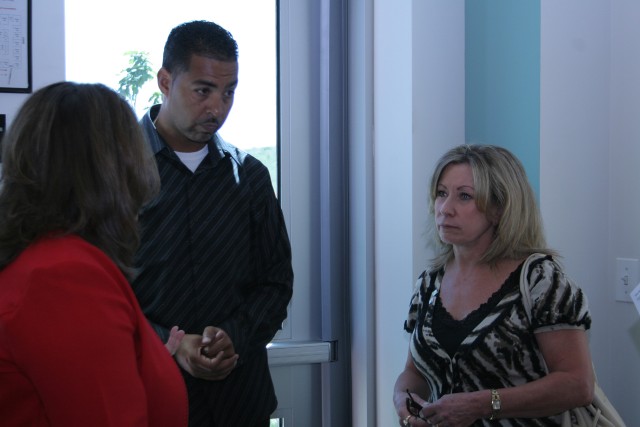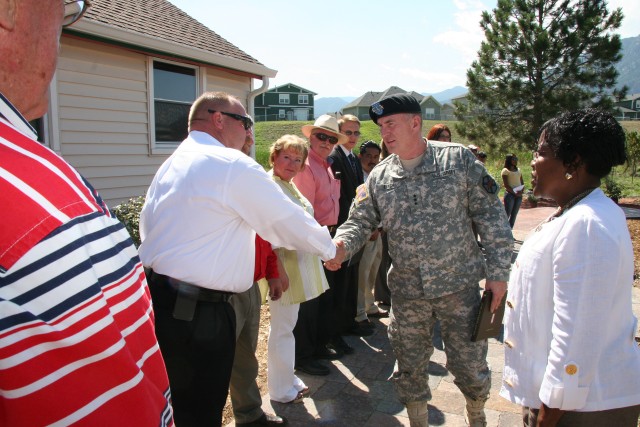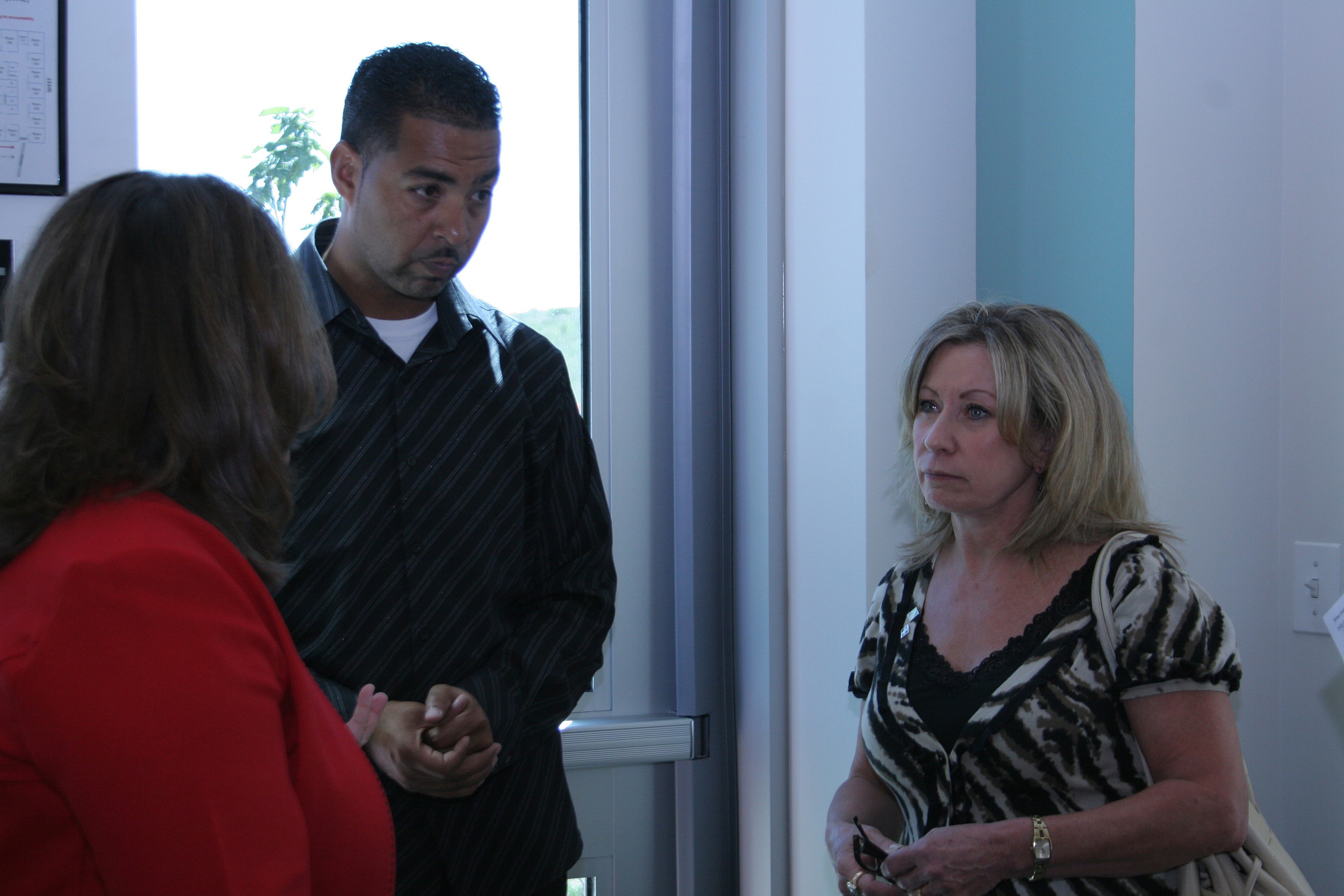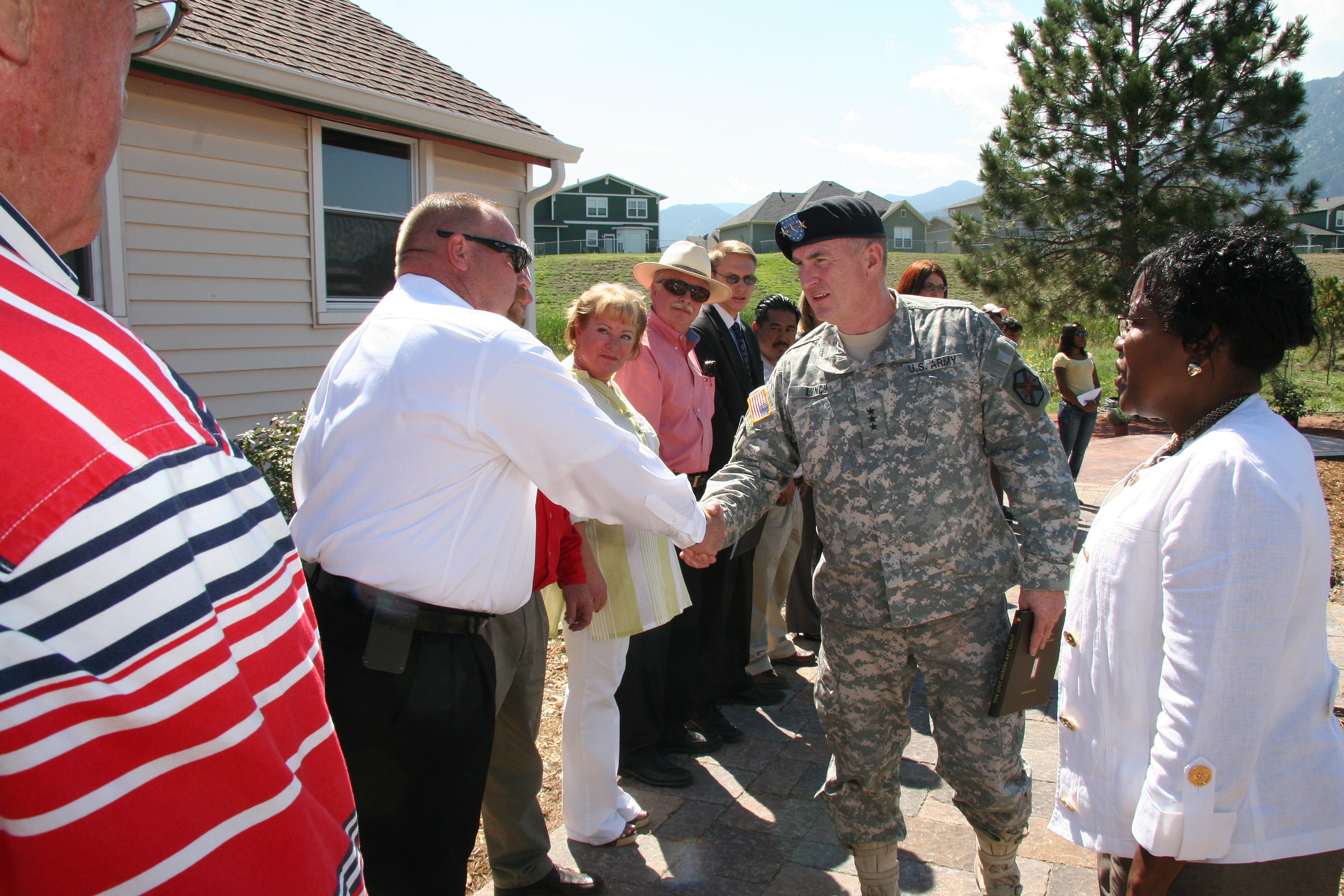FORT CARSON, Colo.-The commanding general of Installation Management Command viewed a variety of facilities and services during a visit to Fort Carson Aug. 25.
Lt. Gen. Rick Lynch's tour included construction sites, brigade combat team facilities and the resiliency campus. He also had extended visits to the Army Substance Abuse and Survivor Outreach Services programs.
"I think it's very important for the Families of our fallen heroes to be on the radar of a top-level commander," said Angela Gunn, interim director, Survivor Outreach Services.
"This shows the Gold Star Families that they are still an important part of the Army."
The SOS facility is under construction and expected to be complete in October. Both the facility and program offer healing to Gold Star families whose Soldiers have made the ultimate sacrifice in service to their country, said Nannette Byrne-Haupt, SOS Family support coordinator and a survivor herself.
"This is a huge addition to the installation, and the Gold Star Families have been looking forward to this for a long time," she said. "It shows where the priority lies, and it lies with the Gold Star Families.
"It's an enormous part of the healing process. They can meet other Families, meet other spouses and all intermingle. One of the best ways to heal is when you connect with other survivors."
Lynch met with Gold Star Families and the volunteers who are helping to build their new facility. He spoke to them about commanding the 3rd Infantry Division and losing 153 Soldiers in combat.
"I went to memorial services in combat. For myself and all my leaders who took off our body armor, we went in and heard the eulogy and cried," he said. "We put on our body armor and we went out again the next day. ... For us, life went on. For you, the tragedy continues. That's what I worry about. I worry about somehow we missed something."
Now, Lynch said, he starts every day with a prayer and by thinking about the faces of those 153 fallen heroes.
"This is two years later. I think about them, and I think about their Families," he said. "What's keeping me awake at night is the Gold Star Family member who has been forgotten, based on the fact that they moved or based on the fact that the unit no longer cares."
Lynch explained the Army's three-pronged approach of the SOS program: passionate coordinators, geographical areas of responsibility to reach out to Families not near a military installation and community involvement.
Lynch said the new SOS facility was an important step in meeting the needs of Gold Star Families.
"What I've found is survivors like to be around other survivors. Gold Star Family members like to be around other Gold Star Family members," he said. "If you don't have a place on the installation where they come and call their own, then you've got a problem with your program."
Reaching out to Gold Star families is a priority of Army leadership at the highest level, Lynch said.
"I want to ensure that our Gold Star families are taken care of; that's the number one thing," he said. "What we don't want is ... survivors and Family members who think they've been forgotten."
He opened it up to questions from the Gold Star Family members present and gave each of them his personal e-mail address and phone number so they could contact him with issues they have trouble getting resolved.
Lynch's wife, Sarah, had lunch with 4th Infantry Division, brigade and separate battalion spouses and also toured facilities and programs, including The Hub, home to the Warrior Family Community Partnership; Child, Youth and School Services and the new Soldier and Family Assistance Center.
The SFAC serves 470 Soldiers assigned to the Warrior Transition Unit and their Families and has about 2,000 customer visits per month, said Tiffany Smith, SFAC director.
"(Her visit is) an opportunity for us to show off Fort Carson's SFAC and talk to her a little bit about utilization rates, because we have a very strong utilization rate," she said.
Smith said she wanted to speak with Sarah about the specialized care that the SFAC offers.
"One of the things that I know is a hot topic right now is looking at duplication of services," she said. "I really believe we are specialized. Some of our Soldiers come in and they can't just have a traditional 45-minute appointment and out the door they go. They really need to have assistance in increments of like 10 minutes and take a break and come back for 10 minutes.
"Every one on my staff has specialized training in understanding (post-traumatic stress disorder) and (traumatic brain injury). Because that is so much of our population - that's our focus - we are becoming more and more specialized every day that we are here and open for business. The experience level is just incrementally growing."
As IMCOM commander, Lynch ensures that garrison commands at Army installations worldwide meet the needs of Soldiers, Families and civilians in their communities. His columns, on topics that have included Army Family Action Plan, Army Community Covenant and community outreach, appear monthly in the Mountaineer.




Social Sharing